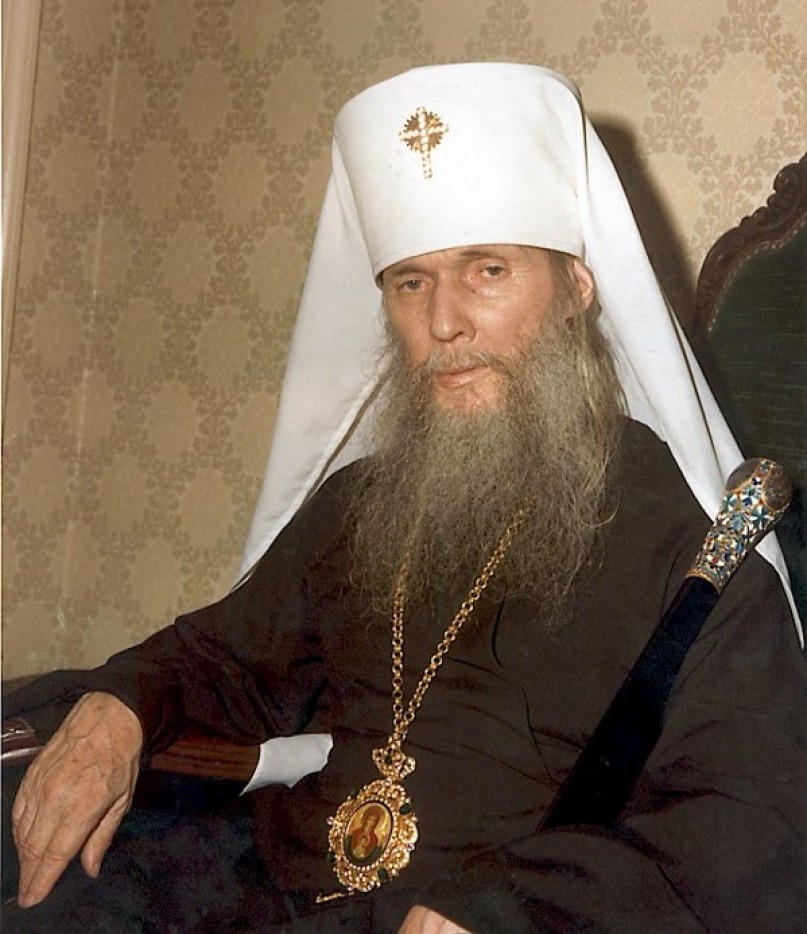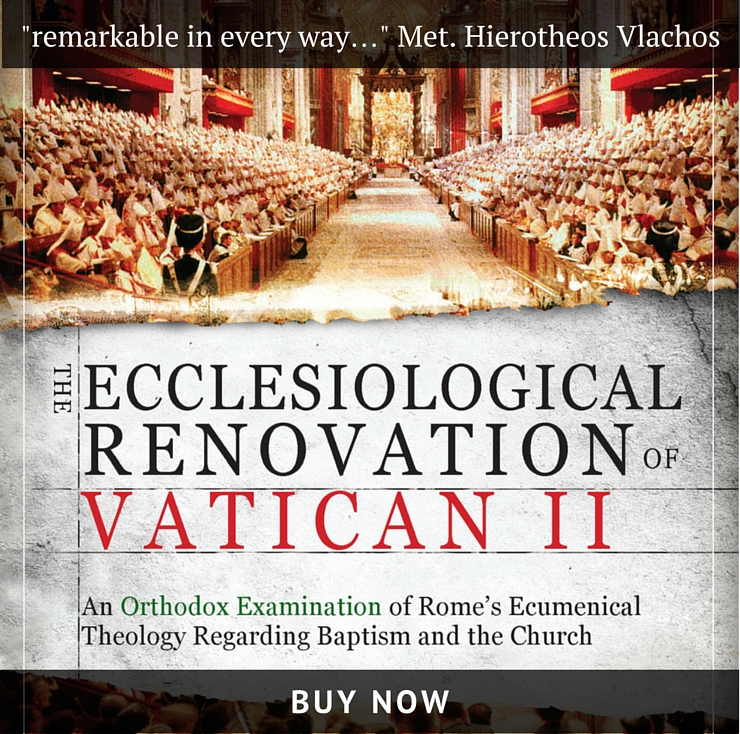Naturally, one will love one's own family and the relatives he grew up with, most of all, and secondly, the whole country, the people to which one belongs. One is tied to this people both by state and civil obligations and by culture and customs. One is bound to one's people, to one's own homeland, and one loves them. This love for homeland is that Christian patriotism which cosmopolitanists so strongly struggle against.
Christian patriotism is, of course, alien to those extremes and errors into which "super-patriots" fall. A Christian patriot, while loving his nation, does not close his eyes to its inadequacies, but soberly looks at its properties and characteristics. He will never agree with those "patriots" who are inclined to elevate and justify everything native (even national vices and inadequacies). Such "patriots" do not realize that this is not patriotism at all, but puffed up national pride - that very sin against which Christianity struggles so strongly. No, a true patriot does not close his eyes to the sins and ills of his people; he sees them, grieves over them, struggles with them and repents before God and other peoples for himself and his nation. In addition, Christian patriotism is completely alien to hatred of other peoples. If I love my own people, then surely I must also love the Chinese, the Turks or any other people. Not to love them would be non-Christian. No, God grant them well-being and every success, for we are all people, children of one God.
The most important information which we find concerning patriotism is in the Holy Scripture. In the Old Testament, all the history of the Jewish people is filled with testimony of how the Jews loved their Sion, their Jerusalem, their temple. This was a model of true patriotism, of love for one's people and its sacred things. Significantly, our Christian Church has adopted this glorification of holy things by the Jews for our own services (although with a slightly different, Christian understanding) and chants, “Blessed is the Lord out of Sion, Who dwelleth in Jerusalem. Alleluia” (Ps. 134:21). The prophet Moses showed an especially striking example of love for his people. On one occasion, immediately after having received the testament from God, the Israelite people betrayed their God and worshipped a golden calf. Then, the justice of God's Truth became strongly inflamed. Moses began to pray for his people who had sinned. He remained on the mountain for forty days and forty nights in prayer. The Lord told him, “Now let Me alone, and I will be very angry with them and consume them” (Ex. 32:10). In these words of God, there is a remarkable testimony about the power of the prayer of a righteous person, by which he, in the bold words of St. John Chrysostom, in some way binds God. The great prophet began to pray even more fervently and finally exclaimed, “And now if Thou wilt forgive their sin, forgive it; and if not, blot me out of Thy book, which Thou hast written” (Ex. 32:32). And the Lord harkened to Moses. Is this not the highest struggle of self-denying patriotism?
We see a similar example in the New Testament in the life of the great Apostle Paul. No one hindered his work of preaching more wrathfully and stubbornly than did his fellow countrymen. They hated Paul and considered him to be a betrayer of the faith of their fathers. Nevertheless, the Apostle says, “For I could wish that myself were accursed from Christ for my brethren, my kinsmen according to the flesh” (Rom. 9:3). From these words, we see his love for his native people. This love was so great that, like Moses, he was prepared to sacrifice even his personal, eternal salvation for the salvation of his people.
We have an example in the life of the Saviour Himself. In the Gospel we read that He came only to His own people and spoke to them first of all. On another occasion, He said, turning to Jerusalem, “O Jerusalem, Jerusalem, which killest the prophets, and stonest them that are sent unto thee; how often would I have gathered thy children together, as a hen doth gather her brood under her wings... (Luke 13:34). When He rode into Jerusalem to the cries of "Hosannah," when all the people rejoiced, the Saviour wept. He did not weep for Himself, but for this, His city, and because of the ruin of those who were now crying to Him, "Hosannah!" but in a few days would cry, "Crucify Him." Thus did He love His own people with a profound and moving love.
The feeling of patriotism, therefore, is not rejected and condemned by Christianity. It does not condemn, despite the false views of cosmopolitanists, the righteousness of the preeminent love for one's neighbors. We already know the words of the Apostle, “If any provide not for his own, and specially for those of his own house, he hath denied the faith, and is worse than an infidel” (I Tim. 5:8).
Once more we emphasize that such love and care must not be an egoistic, self-enclosing love. While caring for those with whom one comes into a direct contact, a Christian must never forget other people in his Christian love -- his neighbors, and brothers in Christ. In conclusion, let us cite these words of Apostle Paul (from the Epistle to the Galatians): “As we have therefore opportunity, let us do good unto all men, especially unto them who are of the household of faith” (Gal. 6:10).
Naturally, this Christian patriotism we have spoken of requires from each of us as great a service as possible to the nation. This service is fulfilled most of all in service to the government or society. The value of such service is even more significant if it is rendered unselfishly -- free of any material calculations and considerations. A person serves the country in one way or another when he participates in its life, for example, by expressing himself in the press or in civil elections, etc. In this, one must strive to bring benefit to the whole country, the whole people, and not merely to one's own personal or party interests. Then one's conscience will be at peace. It may be that one will not attain great external success, but let him, nevertheless, fulfill the duty of a patriot and a faithful child of the nation in an honorable and Christian manner.
There is a saying, "A friend in need is a friend indeed." Love for the nation is most clearly manifested in times of national trials and troubles. We all know how it feels when someone close to us is ill. We do not want diversions or comforts. In our sorrow and concern, we sometimes cannot even eat or drink or sleep. One who truly loves his nation will manifest similar feelings during times of national troubles. If our heart is filled with nothing but our own personal experiences and interests, if we moan and sigh while our deeds remain far from our words, then our love for the nation is poor indeed.
One of the clearest and most self-denying struggles of service to one's homeland is to die for the nation. A Christian soldier is a defender of the homeland, and clearly fulfills Christ's precept, “Greater love hath no man than this, that a man lay down his life for his friends” (John 15:13).
War in itself is absolutely evil, an extremely sad phenomenon and deeply contrary to the very essence of Christianity. Words cannot express how joyous it would be if people ceased to war with one another and peace reigned on earth. Sad reality speaks quite otherwise, however. Only some dreamers far removed from reality and some narrowly one-sided sectarians can pretend that war can be omitted from real life.
It is quite correct to point out that war is a violation of the commandment, “Thou shalt not kill” (Ex. 20:15). No one will argue against that. Still, we see from the Holy Scriptures that in that very same Old Testament time when this commandment was given, the Israelite people fought on command from God, and defeated its enemies with God's help. Consequently, the meaning of the commandment, “Thou shalt not kill,” does not refer unconditionally to every act of removing a person's life. This commandment forbids killing for revenge, in anger, by personal decision or act of will. When our Saviour explained the deep meaning of this commandment, He pointed out that it forbids not only actual killing, but also unchristian, vain anger.
Nevertheless, in a conversation with the apostles about the last days, the Lord told them, “Ye shall hear of wars and rumours of wars: see that ye be not troubled: for all these things must come to pass” (Matt. 24:6). With these words, the Lord refutes all statements that war is avoidable.
True, we have already examined the fact that war is a negative phenomenon. Yet, it will exist, sometimes as the sole defense of truth and human rights, or against seizure, brutal invasion and violence. Only such wars of defense are recognized in Christian teaching. In fact, we hear of the following event in the life of St. Athanasius of the Holy Mountain. Prince Tornikian of Georgia, an eminent commander of the Byzantine armies, was received into monasticism at St. Athanasius' monastery. During the time of the Persian invasion, Empress Zoe recalled Tornikian to command the armies. Tornikian flatly refused on the grounds that he was a monk. But St. Athanasius said to him, "We are all children of our homeland and we are obligated to defend it. Our obligation is to guard the homeland from enemies by prayers. Nevertheless, if God deems it expedient to use both our hands and our heart for the commonwealth, we must submit completely… If you do not obey the ruler, you will have to answer for the blood of your compatriots whom you did not wish to save, and for the destruction of the churches of God." Tornikian submitted, defeated the enemy and rescued the homeland from danger.
In a conversation with Mohammedans, about war, St. Cyril, the Enlightener of the Slavs, said, "We meekly endure personal offenses; but as a society, we defend each other, laying down our lives for our neighbors, so that you having taken them captive, do not force them to deny their faith or perform acts against God." Finally, what Russian does not know the example of St. Sergius of Radonezh, who blessed Prince Dimitry Donskoy to go to war, prayed for the success of the Russian army, and commemorated those soldiers who died on the field of battle?
One can, of course, sin and sin greatly while participating in war. This happens when one participates in war with a feeling of personal hatred, vengeance, or vainglory and with proud personal aims. On the contrary, the less he thinks about himself, and the more he is ready to lay down his life for others, the closer the Christian soldier approaches the martyr's crown.
-From ”On the Law of God” by Metropolitan Philaret of New York; Printshop of St. Job of Pochaev, Holy Trinity Monastery, Jordanville, NY; p. 60-65
Also, you can listen below to a reading of this text by our brother at "Orthodox Wisdom":



Please be kind, lest your comment go the way of Babylon.